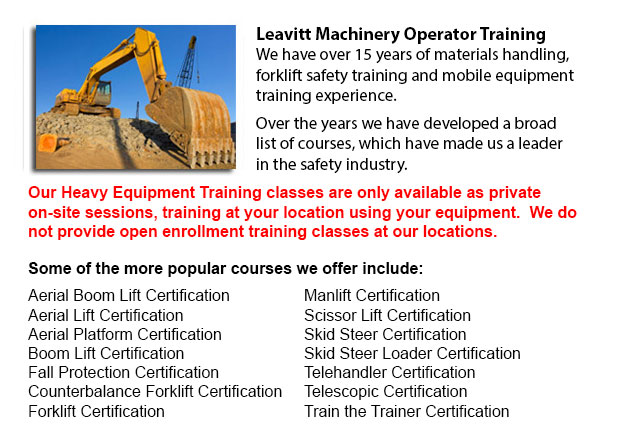
Heavy Equipment Ticket Edmonton - A heavy equipment operator will use various construction machines, depending upon the nature of the job at hand. The big machines are made to carry out specific tasks in the most effective method for each and every business. Various kinds of machines are small enough to be utilized within plants or inside of warehouses, and could be particularly designed to move boxes and pallets. Larger machinery is usually utilized outdoors to clear areas and grade land to prepare for construction.
There are many projects that need the expertise of a heavy equipment operator, such as public works projects and endeavors of privately owned businesses. Jobs performed by public works offices may include road construction and the building of bridges. There are numerous other publicly funded projects that comprise airport runways, dam construction, power plants, municipal structures and levees. Private ventures could include the construction of malls, office buildings, industrial parks and retail stores.
Small scale jobs would usually need heavy equipment to be used inside huge industrial spaces or inside commercial buildings. The equipment which will be utilized in this particular instance, consists of pallet jacks, forklifts and cherry pickers. Trenchers and backhoes are usually offered in various sizes appropriate for work requiring less bulky and powerful equipment.
Operators of heavy equipment would be required to be certified by their regional or local agency. A lot of these operators are cross-trained and certified to operate a lot of different models of heavy machines. Other operators choose to specialize in operating only one kind of machinery and just need periodic updates on their operating permit certifications.
The employers working in this business operating heavy equipment will normally be trained by taking a formal apprenticeship program or by receiving on-the-job training by their unions or companies. It is vital that employers hire fully-trained heavy equipment operators to adhere to local rules and follow regional and local laws regarding job situations and employee safety.
-
Forklift Training Programs Edmonton
Forklift Training Programs Edmonton - If you are searching for work as an operator of a forklift, our regulatory-compliant lift truck training programs provide excellent instruction in numerous styles and types of forklifts, classes on pre-shift insp... More -
Heavy Equipment Training School Edmonton
Heavy Equipment Training School Edmonton - The heavy equipment operator courses will assist the operator in acquiring the required skills and knowledge they will require to be able to enter the workforce as an entry level operator. In this 12 week co... More -
Manlift Ticket Edmonton
Manlift Ticket Edmonton - The Elevated Platforms and Manlifts Certification program helps to provide the necessary training on the safe operating procedures, work practice, rules and regulations regarding the daily activities for the operators of thi... More -
Crane License Edmonton
Crane License Edmonton - Crane operators must be "credentialed", which means they must have a crane operator license or certification. Credentialing is considered a mandatory governmental requirement in order to practice as a crane operator. Having a... More -
Counterbalance Forklift License Edmonton
Counterbalance Forklift License Edmonton - When operated by totally trained operators, forklifts could become a major advantage for firms and companies. We could offer your staff a comprehensive training program which covers all aspects of operating... More -
Manlift Safety Training Edmonton
Manlift Safety Training Edmonton - Manlift operators have to be aware and cognizant of all the potential hazards which are associated with particular types of scissor lifts. They need to be able to operate the scissor lift in a way that protects not... More -
Forklift Training School Edmonton
Forklift Training School Edmonton - Forklift Training School And Reasons Why It Is Really Important - Industry and federal regulators have established the criteria for forklift safety training based on their existing standards and regulations. Indivi... More -
Overhead Crane Safety Training Edmonton
Overhead Crane Safety Training Edmonton - The overhead crane safety training course is designed to equip the operators with the right skills and knowledge in the areas of: crane safety precautions, materials handling, accident avoidance, and equipmen... More

Forklift Training Edmonton
crossorigin="anonymous">
TOLL FREE: 1-888-254-6157
Edmonton, Alberta
forklifttrainingedmonton.com
Email Us
About Us


